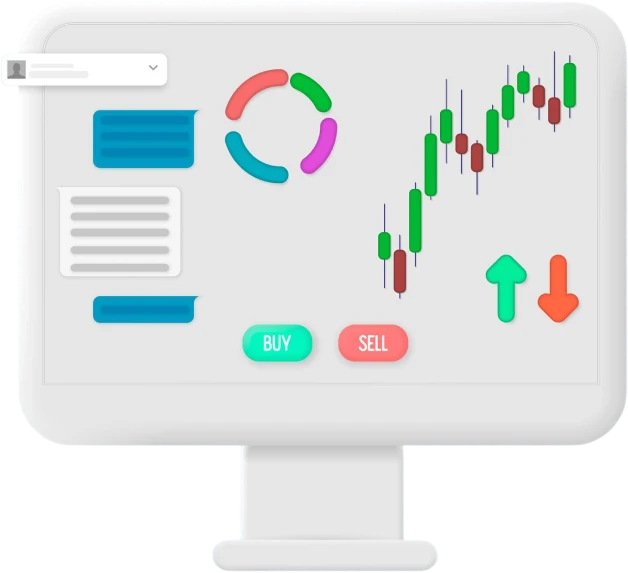Kratuxil
Kratuxil: Clarity of the Market in Real Time Supported by AI


An intelligent AI-driven system is deployed by Kratuxil, which analyzes each market movement, decodes patterns, and highlights insights that can be applied instantly.
The copy-trading option at Kratuxil enables users to adhere to structured strategies without compromising flexibility, and a contemporary analysis engine transforms datasets into actionable indicators. Even during off-peak hours, visibility is guaranteed by constant surveillance.
Kratuxil constantly retrain its models to match them with changing sentiment and order-book trends. Users are protected at every touchpoint by improved encryption and access protocols. Data integrity is ensured by Kratuxil, which also adheres to institutional-grade security guidelines. The price of cryptocurrencies fluctuates, and losing money is a possibility.

Kratuxil combines chart trends, live news, social sentiment, and proprietary algorithms into a single, comprehensive visual dashboard. Its AI engine pinpoints breakout zones, liquidity levels, and market pressure points, giving users actionable signals backed by structured, real-time insights.

By layering momentum signals, volume trends, and sentiment shifts, Kratuxil offers real-time analysis that streamlines decision-making. Traders gain consistent signals rooted in data, not guesswork, enabling more confident, calculated execution.

Kratuxil continuously scans blockchain records—both live and historical—detecting liquidity patterns, price pressure points, and fast shifts ahead of standard signals. Its unique algorithms convert this complex input into focused alerts and actionable visuals, allowing traders to track momentum and adapt quickly to shifting crypto dynamics.
Kratuxil connects users to reliable trading strategies, enabling observation, replication, or customization based on verified data instead of generic trend-following. Custom risk limits, real-time alerts, and performance audits ensure flexible pacing: clear summaries and group insights power continuous learning across all trading styles and experience levels.

Kratuxil utilizes advanced encryption and trusted security frameworks to safeguard user data at every stage. Since no transactions occur on the platform, all sensitive details stay locked behind verified credentials. With layered authentication and secure sessions, users remain in complete control while trading securely.
Kratuxil leverages advanced AI models to detect market momentum, pinpoint liquidity hotspots, and identify key price levels. Easy-to-navigate dashboards, interactive visuals, and step-by-step insights help decode market complexity. Real-time data streams support sound decision-making across diverse trading styles.
As conditions evolve, Kratuxil continually refreshes key metrics, tracking shifts in sentiment, volume, and technical signals. By integrating live blockchain data, order flow changes, and news analysis, it ensures your strategy stays responsive to current market forces.
Kratuxil delivers a next-generation intelligence system that decodes sentiment shifts and refines trading decisions through precise analytics. Kratuxil AI-driven tools scan global market signals in real time, highlighting actionable developments and emerging trends. Traders benefit from an all-in-one view that simplifies the complexity of asset movements.
At the heart of Kratuxil lies an ultra-responsive analytics core that quickly processes evolving data streams. The system automatically adapts to new variables, detecting hidden momentum, subtle shifts, and sharp price action. This ensures that users remain informed with up-to-date, reliable signals—even in fast-changing conditions.
Kratuxil utilizes adaptive intelligence to monitor evolving market dynamics and recalibrate its models in response to new events. These continuous updates help traders stay aligned with real-time trends, refining strategies that stay in sync with evolving conditions.
With full-spectrum analysis, Kratuxil keeps traders informed of sudden changes in volume, sentiment, and order flow. Its rapid data-processing capabilities ensure you're aware of risks and opportunities the moment they arise, providing clarity even in fast-paced environments.
Whether you're new or experienced, Kratuxil provides dedicated tools and resources to enhance your journey. From interactive tutorials to secure platform features and strategy assistance, the platform is built to deliver a confident, well-supported experience for every level of trader.
Backed by advanced neural frameworks, Kratuxil monitors real-time order flow and sentiment fluctuations at lightning speed. It detects hidden correlations, anticipates sharp price turns, and helps users define optimal entry points, position sizes, and trade directions. Feedback loops refine insights continuously, ensuring both new and seasoned traders benefit from reliable, data-driven clarity.
Instead of relying on manual charting, traders gain access to Kratuxil’s responsive dashboard, which displays evolving patterns and key alerts in real-time. Innovative automation tools translate raw metrics into timely guidance, while case-based examples offer perspective for refining strategy.
Security and data protection are central to the platform. Kratuxil integrates enterprise-grade encryption, multi-level authentication, and responsive account safeguards. With resources tailored to every skill level, Kratuxil supports structured, strategic decision-making in volatile markets.

In fast-moving markets, a static approach no longer works. Kratuxil empowers traders to craft flexible, actionable strategies by analyzing recent price shifts, tracking trade performance, and aligning with personal goals. Its intelligent dashboards reveal key inflection points, enabling users to pivot strategies as conditions evolve.
Some trades require immediate action, while others benefit from strategic patience. Kratuxil supports both styles—offering side-by-side evaluations of quick-turn trades and longer-term plays. Real-time benchmarking refines decision-making, helping traders adapt with precision at every step.

Volatile conditions demand more than just basic signals. Kratuxil evaluates liquidity shifts, trading volume spikes, and price movements to deliver personalized risk insights. Traders receive tailored alerts that help manage swings, avoid overexposure, and respond quickly to hidden threats.
Before making any move, it’s vital to recognize crucial trade zones. Kratuxil identifies emerging volatility, maps potential reversals, and flags risky zones. This AI-backed guidance allows users to act with better awareness and stay ahead in complex trading environments.
Using the latest AI breakthroughs, Kratuxil provides daily, unbiased trading insight. Live dashboards and real-time models highlight market patterns before they fully develop. These data-driven evaluations support objective planning and prompt responses, while constantly reminding users that crypto prices are volatile and trading losses are possible.
By analyzing streams of market activity, Kratuxil reveals directional signals early. Interactive heatmaps, timely alerts, and concise summaries enable swift action without relying on automation. These insights facilitate transparent and adaptive decision-making in unpredictable environments.
Traders need more than charts—they need clarity. That’s where Kratuxil steps in. With tools to read volatility, follow trends, and catch early momentum shifts, Kratuxil helps decode market chaos into understandable signals.
Momentum trackers spot action before the crowd, while volatility bands show when things are getting out of control. Trend markers and strength meters guide users toward breakout moments—or away from risky traps.
Everything runs through smart filters, so you only see what matters. With Kratuxil, you’re not just watching the market—you’re staying ahead of it.

The overall attitude of traders and investors plays a powerful role in driving price movements. By analysing media coverage, online chatter, and trading patterns, sentiment analysis helps gauge whether confidence is rising or caution is spreading. With Kratuxil, users gain a clearer picture of these emotional undercurrents shaping the market landscape.
AI-driven sentiment tools comb through vast volumes of data to detect changes in crowd psychology. Identifying whether the market climate is leaning towards optimism or fear can offer early clues about shifts in volatility. When positive sentiment dominates, upward momentum often follows; a more negative outlook, on the other hand, may suggest an incoming dip.
When paired with traditional chart signals, sentiment analysis delivers a fuller view of potential market direction. Kratuxil uses intelligent tracking to highlight changes in collective opinion, helping users remain in tune with evolving trends and take action based on a broader understanding of market mood.

Wider economic forces—like job reports, inflation rates, and central bank decisions—can leave a noticeable mark on the digital asset space. These elements sway investor outlook and often trigger shifts in market behaviour. Through AI-powered analysis, Kratuxil breaks down how macroeconomic changes may shape the value of cryptocurrencies. For example, when inflation rises, interest in decentralised assets such as Bitcoin often sees a surge, as traders seek alternatives to traditional financial systems.
By combining on-chain analytics with macroeconomic indicators, Kratuxil provides a holistic dashboard for assessing risk. AI continuously interprets real-time data, updating users with key insights that influence portfolio strategies and exposure levels.
With bright visuals and predictive analysis, Kratuxil helps traders align their approach with market-wide forces, supporting fast and well-informed decisions in times of economic change.

Timing a trade can make the difference between missing an opportunity and achieving a solid gain. Kratuxil analyzes market movements in real-time, detecting shifts in momentum and identifying entry zones before they become apparent. Traders receive instant alerts for setups with high potential.
Whether the market is trending or consolidating, Kratuxil decodes key signals, recognizes cyclical patterns, and offers data-backed guidance to help users respond quickly. Built-in prompts assist with mid-trade decisions, enhancing control and clarity in volatile conditions.

Success in crypto often comes from spreading your investments across different assets. Kratuxil helps users build a brilliant mix by offering tailored allocation tips, real-time tracking, and alerts when it’s time to rebalance. Easy-to-read visuals show how your assets work together, helping you stay aligned with your goals and risk levels.
Timing matters. Kratuxil utilizes rapid, precise pattern analysis to identify sudden volatility or unusual trading activity. Its live dashboards send out quick alerts, so you can catch market waves early and act with confidence.
Kratuxil tracks the early signs of market speed-ups or slowdowns, helping traders catch momentum changes before they fully unfold. Instant alerts highlight when a move is gaining energy—or losing steam—so users can tweak strategies fast. Trend heatmaps and clean visuals make it easy to act on insights with confidence.
In the crypto world, price swings are the norm, not the exception. Kratuxil utilizes AI to identify significant shifts, flag risk levels, and forecast potential market direction. With dynamic dashboards and actionable insights, users can stay ready for whatever comes, even in chaotic conditions.
Understanding the market shouldn’t feel overwhelming. Kratuxil breaks down complex data into easy-to-understand, useful guidance. Using deep-learning tools and real market smarts, it watches order flow, liquidity shifts, and big-picture trends—then delivers clear signals right when you need them.
The tools inside Kratuxil adjust as things change, showing you when momentum builds, volume spikes, or trends start to form. From strategy timelines to live highlights and user leaderboards, everything is designed to help you make better choices, faster. Just keep in mind: crypto is always unpredictable, and losses are a part of the game.

AI is at the core of Kratuxil. It tracks price shifts, monitors changes in market behavior, and identifies sudden events—all in real-time. These adaptive models continually learn as new data is introduced, enabling users to identify trends more quickly than traditional tools.
Yes, Kratuxil is designed for everyone, from first-time traders to experienced pros. The clean layout, easy summaries, and step-by-step guidance make it simple to understand and use. You don’t need deep trading knowledge to get started.
Unlike platforms that trade on your behalf, Kratuxil focuses on providing insights and education. It offers independent analysis, keeps your data secure with strong encryption, and gives you complete control. Regular security checks and user-friendly explanations make it a reliable choice for informed decision-making.
| 🤖 Joining Cost | No fees for registration |
| 💰 Operational Fees | No costs whatsoever |
| 📋 Registration Simplicity | Registration is quick and uncomplicated |
| 📊 Focus of Education | Lessons on Cryptocurrencies, Forex Trading, and Investments |
| 🌎 Countries Covered | Excludes the USA, covers most other countries |